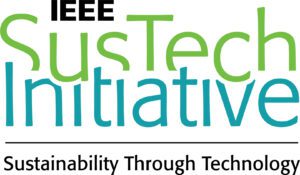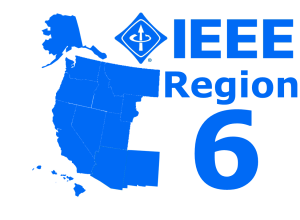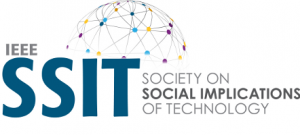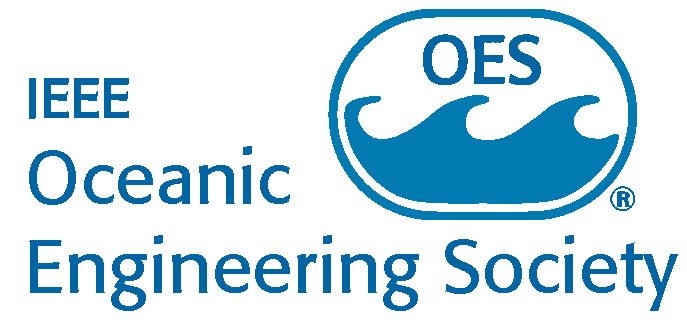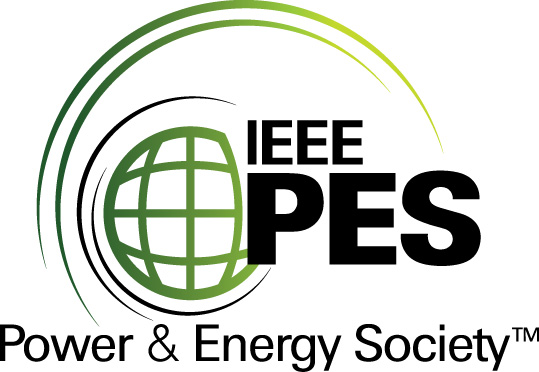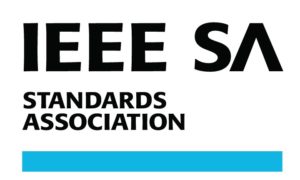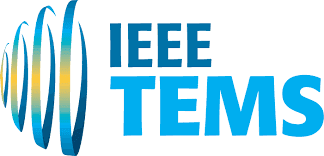Invited speakers
SusTech 2016 Invited Speakers by Track
Index: Renewable Energy / Smart Grid / Societal Implications
RENEWABLE ENERGY
Effect of Spectral Shift on Solar PV Performance
Mitchell Lee, First Solar
Abstract:
Photovoltaic module performance is defined at standard test conditions, which includes a defined spectral irradiance distribution. However, environmental conditions in the field often differ from the standard spectrum; this change in spectrum is known as spectral shift or spectral mismatch. Mitchell will discuss the impact of spectral shift on various PV technologies and presents models that have been proposed to characterize this effect when modeling PV system performance.
Speaker:
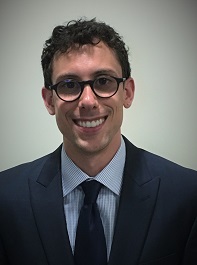 Mitchell Lee is an engineer at First Solar. He develops and validates models that are used to predict the energy generation of PV power plants. Prior to First Solar, Mitch was an energy data analyst at the Columbia University Earth Institute where he focused on PV micro-grids and better understanding the energy needs of the rural poor in developing countries.
Mitchell Lee is an engineer at First Solar. He develops and validates models that are used to predict the energy generation of PV power plants. Prior to First Solar, Mitch was an energy data analyst at the Columbia University Earth Institute where he focused on PV micro-grids and better understanding the energy needs of the rural poor in developing countries.
Mitchell’s work has been published in Renewable Energy, Energy & Environmental Science, the IEEE Photovoltaics Conference, and the IEEE Global Humanitarian Conference. Mitch earned a BS in Mechanical Engineering from Union College, and a MS in Mechanical Engineering from Columbia University.
Zinc-air Batteries Gain Momentum in Long Duration Applications
Glynne Townsend, VP Business Development, North America, Fluidic Energy
Abstract:
Advanced energy storage technologies are proving to be optimal solutions for long duration applications and enabling strong momentum in long duration applications that have traditionally faced cost and lifetime obstacles including renewable integration, benefit stacking and off grid microgrids. Fluidic Energy invented and commercialized the first rechargeable and long duration Zinc-air energy storage technology, an optimal technology for long duration applications. With over 40 MWh energy storage and strong momentum, Fluidic Energy’s rechargeable Zinc-air technology is filling a void in the clean energy market unlocking commercial viability. Furthermore, this session will cover how Fluidic solutions in these types of applications are going well beyond the chemistry itself to provide vertically integrated solution and a whole product approach.
Speaker:
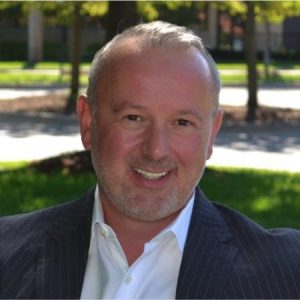 Glynne Townsend leads Business Development efforts in North America at Fluidic Energy. Mr. Townsend joined Fluidic earlier this year from Spider( where he was President and CEO. Spider9 created the Operating System for Energy, OSE, a software and controls platform that revolutionizes the Energy Storage market, advancing industry benchmarks for cost, performance, safety and reliability. His prior roles include leading the revenue growth for A123Systems in both the automotive and grid market space both pre- and post-IPO. In addition, he led new business development teams for TRW and Lucas to penetrate and launch high technology products into new markets around the globe.
Mr. Townsend holds two bachelor’s degree and an MBA.
Glynne Townsend leads Business Development efforts in North America at Fluidic Energy. Mr. Townsend joined Fluidic earlier this year from Spider( where he was President and CEO. Spider9 created the Operating System for Energy, OSE, a software and controls platform that revolutionizes the Energy Storage market, advancing industry benchmarks for cost, performance, safety and reliability. His prior roles include leading the revenue growth for A123Systems in both the automotive and grid market space both pre- and post-IPO. In addition, he led new business development teams for TRW and Lucas to penetrate and launch high technology products into new markets around the globe.
Mr. Townsend holds two bachelor’s degree and an MBA.
SMART GRID
Transactive Energy Market
Paras Mandal, Director, Power & Renewable Energy Systems (PRES) Lab, University of Texas at El Paso
Abstract:
The key elements of the smart distribution systems, such as end-user consumers, distributed energy resources, storage systems, demand response programs and others, need to be actively involved in local coordination tasks for dynamic balancing of supply and demand. In this regard, Transactive Energy (TE) is an emerging concept that shows potential to coordinate the operation of an ever-growing number of intelligent devices and resources by treating economic and control signals of power system. The concept of TE in power grid is in its infancy, however, TE is an area of great opportunities to improve smart grid operations. This talk presents (i) a decentralized TE market mechanism to improve the efficiency, reliability, and performance of the electric power grid in the path towards a sustainable future and (ii) some of the value drivers for the deployment of TE systems. This talk will also highlight the importance of TE market mechanism to provide an interface for DSO and TSO in order to manage the increasing complexity of the grid effectively.
Speaker:
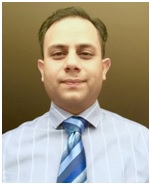 Paras Mandal is an Assistant Professor of Electrical and Computer Engineering and Director of Power & Renewable Energy Systems (PRES) Lab at the University of Texas at El Paso. He received his Ph.D. degree from the University of the Ryukyus, Japan in 2005. In the past, he worked as a JSPS Postdoctoral Fellow at the University of the Ryukyus; Research Professor at Yonsei University, South Korea; Research Fellow at University of Tasmania, Australia; and Postdoctoral Research Fellow at University of Calgary and University of New Brunswick, Canada. His research interests include renewable energy/load/price forecasting, power system operations and markets, smart grid, microgrid, and distribution systems planning. Dr. Mandal is a Senior Member of IEEE. He is a recipient of several awards including the best paper award by IEEE Industry Applications Society and Young Engineer award by the Institute of Electrical Engineers of Japan, and an author of nearly 100 technical publications.
Paras Mandal is an Assistant Professor of Electrical and Computer Engineering and Director of Power & Renewable Energy Systems (PRES) Lab at the University of Texas at El Paso. He received his Ph.D. degree from the University of the Ryukyus, Japan in 2005. In the past, he worked as a JSPS Postdoctoral Fellow at the University of the Ryukyus; Research Professor at Yonsei University, South Korea; Research Fellow at University of Tasmania, Australia; and Postdoctoral Research Fellow at University of Calgary and University of New Brunswick, Canada. His research interests include renewable energy/load/price forecasting, power system operations and markets, smart grid, microgrid, and distribution systems planning. Dr. Mandal is a Senior Member of IEEE. He is a recipient of several awards including the best paper award by IEEE Industry Applications Society and Young Engineer award by the Institute of Electrical Engineers of Japan, and an author of nearly 100 technical publications.
Sustainable System Assessment with Resilient Control Systems Metrics
Timothy McJunkin, Idaho National Laboratory
Abstract:
A relatively new area of research and development known as resilient control systems seeks the means to make systems, that may be complex and distributed, and have human as a necessary or required element of the control loop, maintain acceptable levels of performance in the presence of disturbances generated by nature or man. Current emphasis in resilient control systems is being applied to metrics to measure the relative “resilience” of various changes to the design of the system. For example, the impacts and benefits of adding distributed energy resources to distribution systems or applying advanced control algorithms. There is a strong relationship to how the consumer responds and with respect to how policy is enabled and how competition and cooperation in markets play out. Similar themes can be applied in the area of sustainability as technology is brought online. This talk will discuss distribution system metrics and discuss possible consideration to a more difficult problem of assessing the resilience of proposals for improving sustainability.
Speaker:
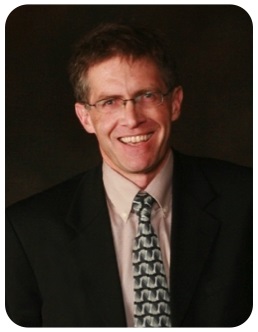 Timothy R. McJunkin is a Senior Research Engineer at Idaho National Laboratory in the Energy and Environment Science and Technology Division, since 1999. He has also served as an adjunct instructor at Idaho State University, teaching control systems and resilient controls systems. Prior to joining INL, he was a design engineer at Compaq Computer Corporation in Houston Texas. Mr. McJunkin is also a developer of educational research tools including the Grid Game developed for multidisciplinary course and training of policy makers.
Timothy R. McJunkin is a Senior Research Engineer at Idaho National Laboratory in the Energy and Environment Science and Technology Division, since 1999. He has also served as an adjunct instructor at Idaho State University, teaching control systems and resilient controls systems. Prior to joining INL, he was a design engineer at Compaq Computer Corporation in Houston Texas. Mr. McJunkin is also a developer of educational research tools including the Grid Game developed for multidisciplinary course and training of policy makers.
Optimal Real-time Demand Dispatch in Smart Grids
Sumit Paudyal, Michigan Technological University
Abstract:
With the implementation of Smart Grid technologies, such as sensors, smart meters, smart appliances, more than one-fourth of the US total electricity demand could be dispatchable. Coordinated demand dispatch of customers’ loads provides benefits to the customers and the grid both. A complete demand dispatch solution that benefits the customers and the grid involves a large scale optimization problem with underlying complex transmission and distribution grid models. A centralized approach to solve this problem is computationally involving in a practical sized grid with the consideration of comprehensive customer load models and the grid models that include discrete control variables. A practical way to solve this problem is to use hierarchical and distributed computing approaches, where information exchange occurs between the different levels in the hierarchy. This talk presents hierarchical framework to i) optimally dispatch electric vehicle (EV) loads in vehicle-to-grid interaction (V2G) and ii) optimally dispatch commercial building loads in building-to-grid (B2G) interaction. The case studies demonstrate the benefits of optimal demand dispatch of EV and building loads to the customers and distribution grid operation.
Speaker:
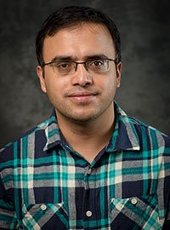 Sumit Paudyal received Msc. degree in Electrical Engineering from the University of Saskatchewan, Saskatoon, Canada, in 2008; and a Ph.D. in Electrical Engineering from the University of Waterloo, Ontario, Canada, in 2012. Currently, Dr. Paudyal is an Assistant Professor at Michigan Technological University. His research expertise includes Smart Distribution Grid Operations, Optimization Techniques in Power Systems, Power System Protection, and Power System Real-time Hardware Simulations.
Sumit Paudyal received Msc. degree in Electrical Engineering from the University of Saskatchewan, Saskatoon, Canada, in 2008; and a Ph.D. in Electrical Engineering from the University of Waterloo, Ontario, Canada, in 2012. Currently, Dr. Paudyal is an Assistant Professor at Michigan Technological University. His research expertise includes Smart Distribution Grid Operations, Optimization Techniques in Power Systems, Power System Protection, and Power System Real-time Hardware Simulations.
Enhanced representations of lithium-ion batteries in power systems models and their effect on the valuation of energy arbitrage applications
Apurba Sakti, Research Scientist, MIT Energy Initiative
Abstract:
We develop three novel enhanced mixed integer-linear representations of the power limit of the battery and its efficiency as a function of the charge and discharge power and the state of charge of the battery, which can be directly implemented in large-scale power systems models and solved with commercial optimization solvers. Using these battery representations, we conduct a techno-economic analysis of the performance of a 10MWh lithium-ion battery system testing the effect of a 5-min vs. a 60-min price signal on profits using real time prices from a selected node in the MISO electricity market. Results show that models of lithium-ion batteries where the power limits and efficiency are held constant overestimate profits by 10% compared to those obtained from an enhanced representation that more closely matches the real behavior of the battery. When the battery system is exposed to a 5-min price signal, the energy arbitrage profitability improves by 60% compared to that from hourly price exposure. These results indicate that a more accurate representation of li-ion batteries as well as the market rules that govern the frequency of electricity prices can play a major role on the estimation of the value of battery technologies for power grid applications.
Speaker:
 Apurba Sakti joined the Department of Chemical Engineering at MIT in April 2014 as a postdoctoral associate and was promoted to a Research Scientist at the Energy Initiative in January 2016. Prior to MIT, Sakti was a graduate research assistant in the Vehicle Electrification Group at Carnegie Mellon University while completing his Ph.D. in Engineering and Public Policy. For his doctoral dissertation, Sakti worked on the design and cost of Li-ion batteries and the associated public policy implications for personal vehicle electrification under the guidance of Jay Whitacre and Jeremy Michalek. His work has since been mentioned in the New York Times and is also being used by a start-up to improve battery manufacturing. Sakti has experience working with the United Nations Development Programme in Zagreb and the American Council for an Energy Efficient Economy in Washington, D.C. At MITEI, Sakti is focusing on different techno-economic aspects of energy storage systems.
Apurba Sakti joined the Department of Chemical Engineering at MIT in April 2014 as a postdoctoral associate and was promoted to a Research Scientist at the Energy Initiative in January 2016. Prior to MIT, Sakti was a graduate research assistant in the Vehicle Electrification Group at Carnegie Mellon University while completing his Ph.D. in Engineering and Public Policy. For his doctoral dissertation, Sakti worked on the design and cost of Li-ion batteries and the associated public policy implications for personal vehicle electrification under the guidance of Jay Whitacre and Jeremy Michalek. His work has since been mentioned in the New York Times and is also being used by a start-up to improve battery manufacturing. Sakti has experience working with the United Nations Development Programme in Zagreb and the American Council for an Energy Efficient Economy in Washington, D.C. At MITEI, Sakti is focusing on different techno-economic aspects of energy storage systems.
SOCIETAL IMPLICATIONS / QUALITY OF LIFE
Humanitarian Engineering and Sustainable Global Development
Dr. B.L. Ramakrishna, Emeritus Professor, Arizona State University
Abstract:
The presentation will A) Illustrate that scientific and technological innovation is key for achieving sustainable development to address the grand challenges especially in developing economies of the world B) Enumerate how designing for the developing world can boost agricultural productivity, provide clean drinking water, expand educational opportunities, empower women, improve child & maternal health and combat infectious diseases and in addition promote environmental sustainability C) Highlight a few examples in the energy, water/sanitation, health and other sectors to show the power of design under extreme constraints to address the needs of more than 2 billion people at the bottom of the pyramid and D) Point out the important considerations at the intersection of science, technology & policy and the need for inventive business models for scaling and sustainability.
Speaker:
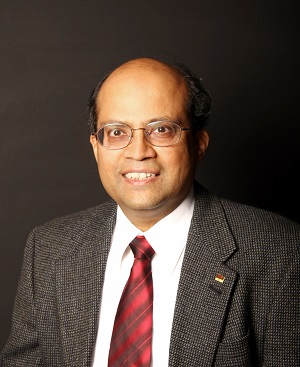 Dr. B.L. Ramakrishna is an emeritus professor at Arizona State University. After receiving his Ph.D from Indian Institute of Technology in Madras he joined the faculty at ASU in 1985, was the Diane and Gary Tooker Professor at the Fulton Schools of Engineering and a member of the Humanitarian engineering faculty. The research questions that he investigated lie at the crossroads of biology and engineering. He worked on biogenic ceramics that precisely engineer their size, shape, and orientation at the nanometer scale, with a view towards applications of the biosensors and silicon-bio hybrid devices in electronics, healthcare and defense. He was the director of ASU’s Grand Challenge Scholars program and is passionate about preparing engineers that not only have the necessary engineering skills but also the cross-disciplinary knowledge, entrepreneurial spirit, global perspective and a sense of service needed to lead the world to meet the great challenges facing humankind in the 21st century. Dr. Ramakrishna was awarded the Jefferson fellowship in 2013 to serve as a senior science and technology advisor to the Office of the US Secretary of State, where he helped guide US’s international relations through the lens of “engineering for sustainable development” and provided intellectual, technical and strategic leadership on policies and priorities in the areas of health, education, energy, infrastructure, economic growth and governance.
Dr. B.L. Ramakrishna is an emeritus professor at Arizona State University. After receiving his Ph.D from Indian Institute of Technology in Madras he joined the faculty at ASU in 1985, was the Diane and Gary Tooker Professor at the Fulton Schools of Engineering and a member of the Humanitarian engineering faculty. The research questions that he investigated lie at the crossroads of biology and engineering. He worked on biogenic ceramics that precisely engineer their size, shape, and orientation at the nanometer scale, with a view towards applications of the biosensors and silicon-bio hybrid devices in electronics, healthcare and defense. He was the director of ASU’s Grand Challenge Scholars program and is passionate about preparing engineers that not only have the necessary engineering skills but also the cross-disciplinary knowledge, entrepreneurial spirit, global perspective and a sense of service needed to lead the world to meet the great challenges facing humankind in the 21st century. Dr. Ramakrishna was awarded the Jefferson fellowship in 2013 to serve as a senior science and technology advisor to the Office of the US Secretary of State, where he helped guide US’s international relations through the lens of “engineering for sustainable development” and provided intellectual, technical and strategic leadership on policies and priorities in the areas of health, education, energy, infrastructure, economic growth and governance.




